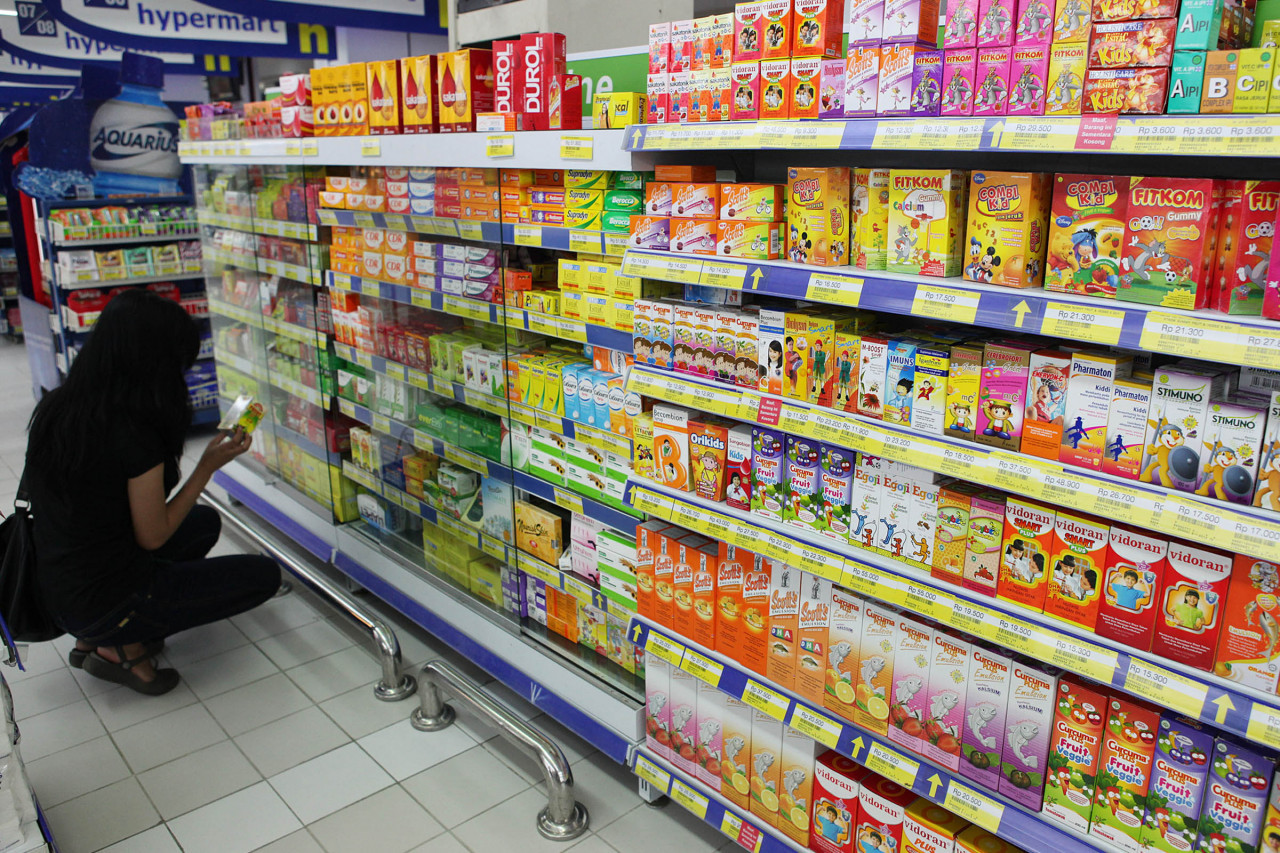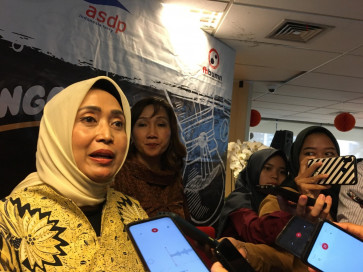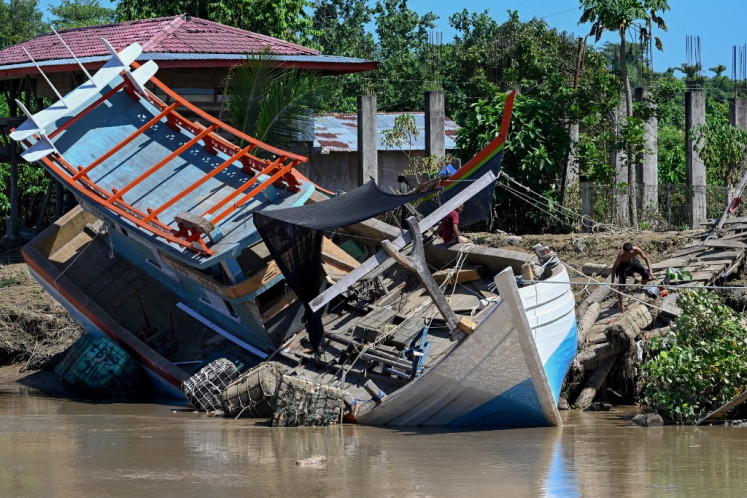Popular Reads
Top Results
Can't find what you're looking for?
View all search resultsPopular Reads
Top Results
Can't find what you're looking for?
View all search resultsPharma companies should focus on multivitamins: Association
Change text size
Gift Premium Articles
to Anyone
P
harmaceutical companies might have to switch the focus of their production to dietary supplements such as multivitamins during the pandemic to cater to increasing consumer demand, an industry association has stated.
Indonesian Pharmaceutical Association (GP Farmasi) chairman Tirto Kusnadi told The Jakarta Post on Wednesday that companies should capitalize on increasing demand for multivitamins as sales of other pharmaceutical products had declined during the health crisis.
“People are scrambling for multivitamins to maintain their immune system, so companies that produce vitamins have seen their sales double,” he said in a phone interview.
Publicly listed pharmaceutical companies, such as Indofarma and Kalbe Farma, have reported an increase in multivitamin sales since the pandemic. Kalbe Farma recorded a 6.9 percent year-on-year (yoy) jump in net sales of its consumer health products, which include vitamins, in the first quarter this year to Rp 996 billion (US$70.1 million), higher than the sales growth of prescription pharmaceutical products at 5.3 percent.
Tirto said that demand for generic drugs, frequently prescribed for patients under the Health Care and Social Security Agency (BPJS Kesehatan) program, had dropped by around 25 percent since the outbreak of the virus as fear of contagion is discouraging people from visiting hospitals.
“People are afraid of contracting COVID-19 at a hospital, so they have been avoiding [hospitals] since the pandemic started. Therefore, pharmaceutical companies must align their product portfolios with this behavioural change,” he said.
Hospital occupancy in Indonesia had fallen to between 20 and 50 percent as COVID-19 continues to spread across the country, the Health Ministry’s director for referral health services, Tri Hesty Widyastoeti Marwotosoeko, said in early May.
Hospitals have also suspended some nonemergency procedures, especially dentistry, elective surgery and ear, nose and throat (ENT) services since April, consequently pushing down demand for various types of medicines.
Furthermore, Tirto said, pharmaceutical companies should prepare themselves for the post-pandemic era by manufacturing drugs for diseases that are projected to grow in the future, such as cardiovascular diseases and diabetes.
Meanwhile, the Indonesian Food and Drug Monitoring Agency (BPOM) has announced that it has deregulated the drug certification process to expedite the pre-manufacturing process of pharmaceutical products, including health supplements.
The BPOM’s drug registration director, Lucia Rizka Andalucia, said on Tuesday that the agency had simplified the certification process for pharmaceutical products that are being developed to combat the spread of COVID-19.
“We’re simplifying and deregulating our certification process without reducing our standards for products that are used against COVID-19, such as hand sanitizer, health supplements and medicines,” she said during an online webinar held by marketing consulting firm Markplus.
Lucia claimed that the processing time to obtain the good medicine manufacturing practices certification (CPOB) had been cut to seven working days from previously 35 working days.
Meanwhile, the licensing process for good cosmetics manufacturing practices (CPKB) certification, which is needed to produce hand gels and sanitizers, was slashed to two working days from 20 working days.
“We also provide assistance during the development of vaccines and drugs and could possibly provide regulatory relaxation and waivers based on our risk assessment of the products,” she said.










